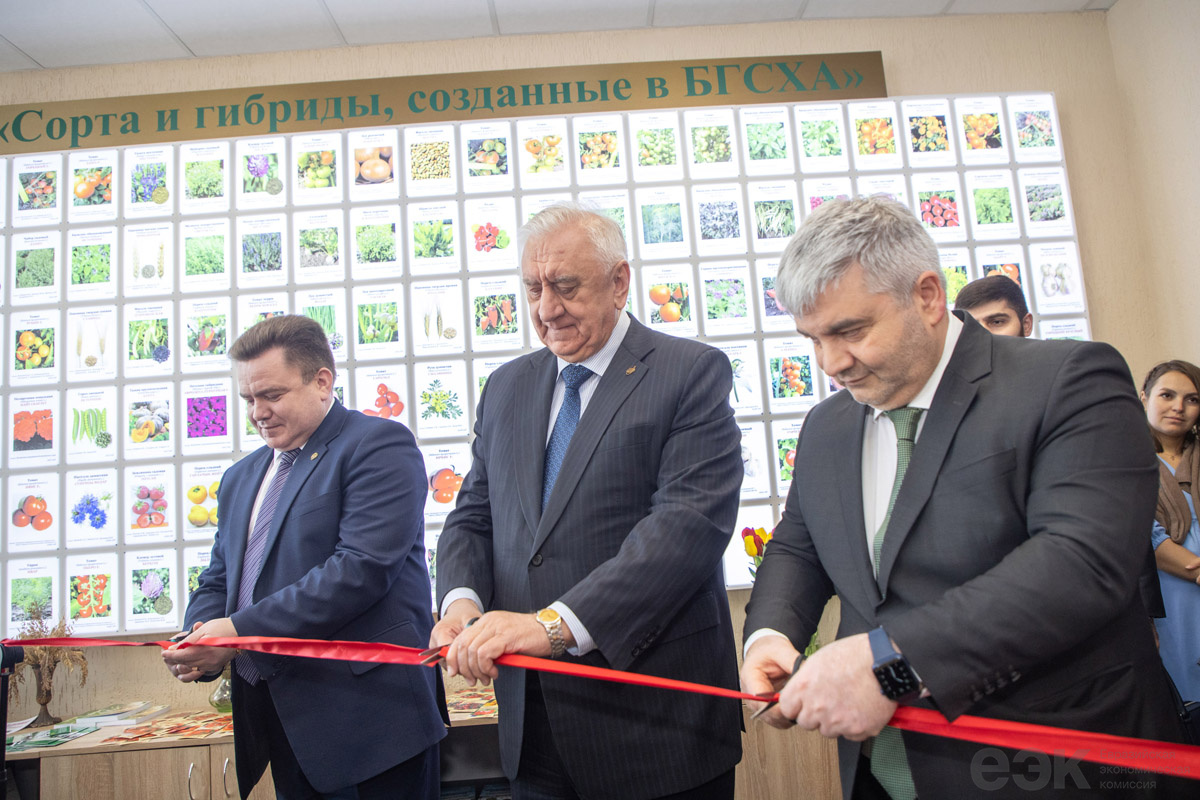News
05.03.2022
EAEU countries discussed prospects for developing common market for agricultural seeds
On March 5, Mikhail Myasnikovich, Chairman of the Board of the Eurasian Economic Commission, and Artak Kamalyan, EEC Minister in charge of Industry and Agriculture, held a round table on the "Prospects for developing the common market for agricultural seeds within the EAEU". The event was held at the venue of the leading Belarusian State Agricultural Academy in Gorki, Mogilev region involving heads of ministries of agriculture, representatives of scientific and educational institutions and business community of the Eurasian Economic Union countries.
However, the development of this industry should be coordinated within the EAEU to further increase competitive advantages of the Member States’ breeders and seed growers. In this regard, the Strategic Directions for Developing the Eurasian Economic Integration until 2025 provide for drafting proposals for joint measures in seed growing.
"The agricultural sector is one of the EAEU strategic economic sectors", Mikhail Myasnikovich stressed. “The issue of uninterrupted supplies of high-quality and safe food to the Union’s citizens has become particularly sensitive against the background of the COVID-19 pandemic and instability of international markets. In response to these challenges, the Union has approved unified principles and approaches to ensuring food security. This is an important step towards forming actual mechanisms for stabilizing the food market, ensuring guaranteed mutual deliveries as well as eliminating existing barriers and restrictions in the EAEU common agricultural market".As the Chairman of the EEC Board has noted, the progress made by the agricultural sector contributed to increasing the EAEU self-sufficiency level for the main types of agricultural and food products. In 2021, this indicator was 93%. The "five" countries fully cover domestic demand for grain, pork, vegetables and potatoes, vegetable oils, sugar and eggs at the expense of their own production. There is only a shortage of fruits and berries. Nowadays, Belarus has the highest level of self-sufficiency in the EAEU (94%). The country supplies food products not only to its citizens, but it is the most important supplier of meat and dairy products to the Union’s common agricultural market.
Along with that, the round table attendees have stated that the Union imports considerable volumes of high-tech production means for plant and livestock breeding as well. In 2021, such goods were imported to a value of over 5 bln US dollars.
"Last year, the Heads of the EAEU States started a new stage in developing the single seed market, indicating directions for further unification in this field until 2026", Artak Kamalyan said. “The Union has an Agreement on the circulation of seeds which will enable reducing dependence on imports and increasing self-sufficiency for own production means".According to the EEC Minister, an upward trend in mutual trade in seeds can be noticed in the Union which reached 100 mln US dollars in 2021. Along with that, import dependence on seeds still remains at a fairly high level, especially for sugar beet, corn, oilseeds, etc.
However, the development of this industry should be coordinated within the EAEU to further increase competitive advantages of the Member States’ breeders and seed growers. In this regard, the Strategic Directions for Developing the Eurasian Economic Integration until 2025 provide for drafting proposals for joint measures in seed growing.
"We have been holding regular consultations with representatives of the seed-growing business since 2021; besides, we count on active involvement of the scientific community in exploring the current state of the Union countries’ seed market. Then, it is planned to address this issue at the meetings of the EAEU governing bodies in a consistent manner so that our States can adopt further decisions that will help develop seed growing", summed up Artak Kamalyan, EEC Minister in charge of Industry and Agriculture.





